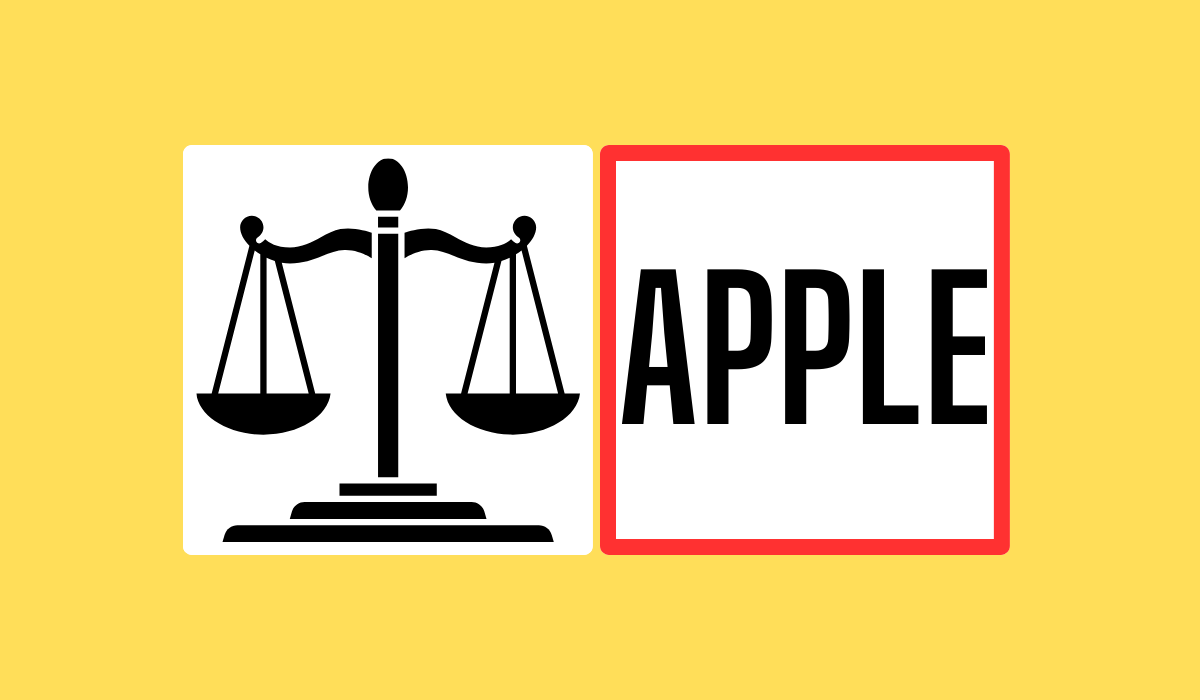
Big Tech on Trial: US Sues Apple for monopoly
The gloves are off in the battleground of Big Tech. In a landmark lawsuit with potentially seismic consequences, the US Department of Justice (DOJ), joined forces with 16 state attorneys general, has thrown down the gauntlet at Apple. The accusation? Wielding an illegal monopoly over the smartphone market. This lawsuit takes direct aim at Apple’s tightly controlled ecosystem, a walled garden where the company allegedly stifles competition and ultimately harms consumers.
This move by the DOJ marks a significant escalation in the ongoing scrutiny of Big Tech giants and their business practices. Could this lawsuit be the crack in Apple’s iPhone empire, or will the company successfully defend its dominance?
DOJ Accuses Apple of Stifling Competition and Innovation Through User Lock-In
The core of the government’s argument revolves around Apple’s control of the iPhone experience. The DOJ alleges that Apple uses its dominant market position to lock users into its ecosystem, making it difficult and expensive to switch to competing devices. This ecosystem includes not just the iPhone itself, but also the ubiquitous App Store, Apple Pay, and other It’s services.
Here’s a breakdown of the specific accusations:
- App Monopoly in the App Store: The government argues that Apple’s exclusive control over the App Store gives it unfair power over app developers. Since all iPhone apps must be downloaded through the App Store, developers are forced to play by Its’s rules, which include strict guidelines and a hefty 15-30% commission on every in-app purchase. The DOJ contends this setup stifles innovation by making it difficult for competing app stores to emerge, while also potentially inflating prices for consumers.
- Limiting Mobile Cloud Streaming: The lawsuit further alleges that Apple restricts the development of cloud-streaming services for mobile devices. These services allow users to enjoy high-quality video games and other applications without needing expensive smartphone hardware. By allegedly hindering these services, the government argues, It limits consumer choice and potentially forces users to invest in more expensive iPhones for the same functionality.
- Shutting Out Download Options: Another point of contention is Apple’s restriction on downloading apps from outside the App Store, a practice known as “sideloading” that’s common on Android devices. The government argues that this limitation reduces consumer choice and hinders access to potentially more affordable or innovative apps.
- Stifling Payment Innovation: Apple Pay is another battleground. The lawsuit claims that it restricts the ability of third-party developers to integrate their own payment systems within their apps, forcing them to use Apple Pay instead. This, the government argues, limits consumer choice for payment methods and could potentially lead to higher transaction fees.
Potential Consequences: A More Open iPhone?
The outcome of this lawsuit could have a ripple effect across the tech industry. Here are some potential scenarios:
- A More Open App Store: If the government prevails, Apple might be forced to open up the App Store to allow alternative app stores and sideloading. This could lead to a wider variety of apps available for iPhone users, potentially at lower prices.
- Reduced App Store Revenue: Apple’s App Store is a significant revenue stream for the company. If the government wins and forces changes to the App Store’s commission structure, It might see a decline in its App Store revenue.
- A Precedent for Big Tech Scrutiny: This lawsuit is likely to set a precedent for future antitrust actions against other large technology companies. It signifies a growing emphasis by the government on addressing concerns about Big Tech’s dominance and potential anti-competitive practices.
Apple’s Response: Defending its Ecosystem
Apple has vehemently denied the allegations, asserting that its business practices foster innovation and create a secure and user-friendly experience for its customers. The company argues that the App Store’s strict guidelines protect users from malware and ensure a high-quality app experience.
A Long Battle Ahead?
The US government’s lawsuit against Apple isn’t a quick fix. It’s more like a long and complicated court case that could take years to settle. Both sides, the government and Apple, will have plenty of chances to argue their cases. They’ll present evidence, call experts, and try to convince a judge or jury that they’re right. This is a big deal, so expect a long fight. Even though it might take a while to get a final decision, this lawsuit is already sparking important discussions about fairness and competition in the tech world.
Can the US Crack Apple’s Grip on the Smartphone Market?
The US government’s lawsuit against Apple reignites crucial conversations about competition, innovation, and consumer choice in the tech industry. While the final outcome remains uncertain, the legal battle itself highlights the growing pressure on Big Tech companies to operate within the boundaries of fair competition.
Whether the lawsuit results in significant changes to Apple’s business practices, one thing is clear the era of Big Tech operating unchecked appears to be coming to an end. This lawsuit could pave the way for a more open and competitive tech landscape, ultimately benefiting consumers and fostering a more vibrant ecosystem of innovation.
Learn the Latest in Tech & AI: Get comprehensive breakdowns of today’s top headlines at The Dogmatic.
The Dogmatic


